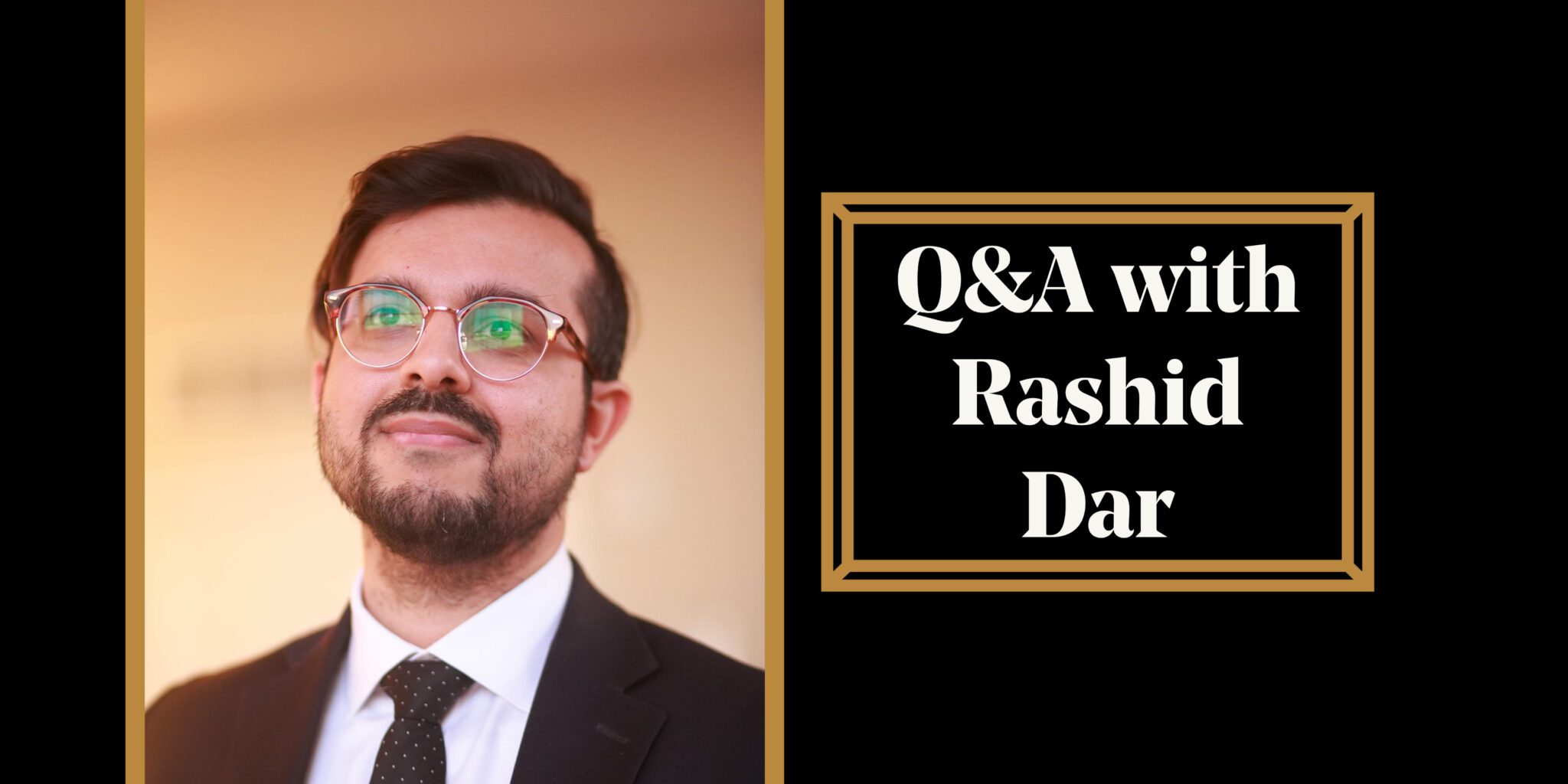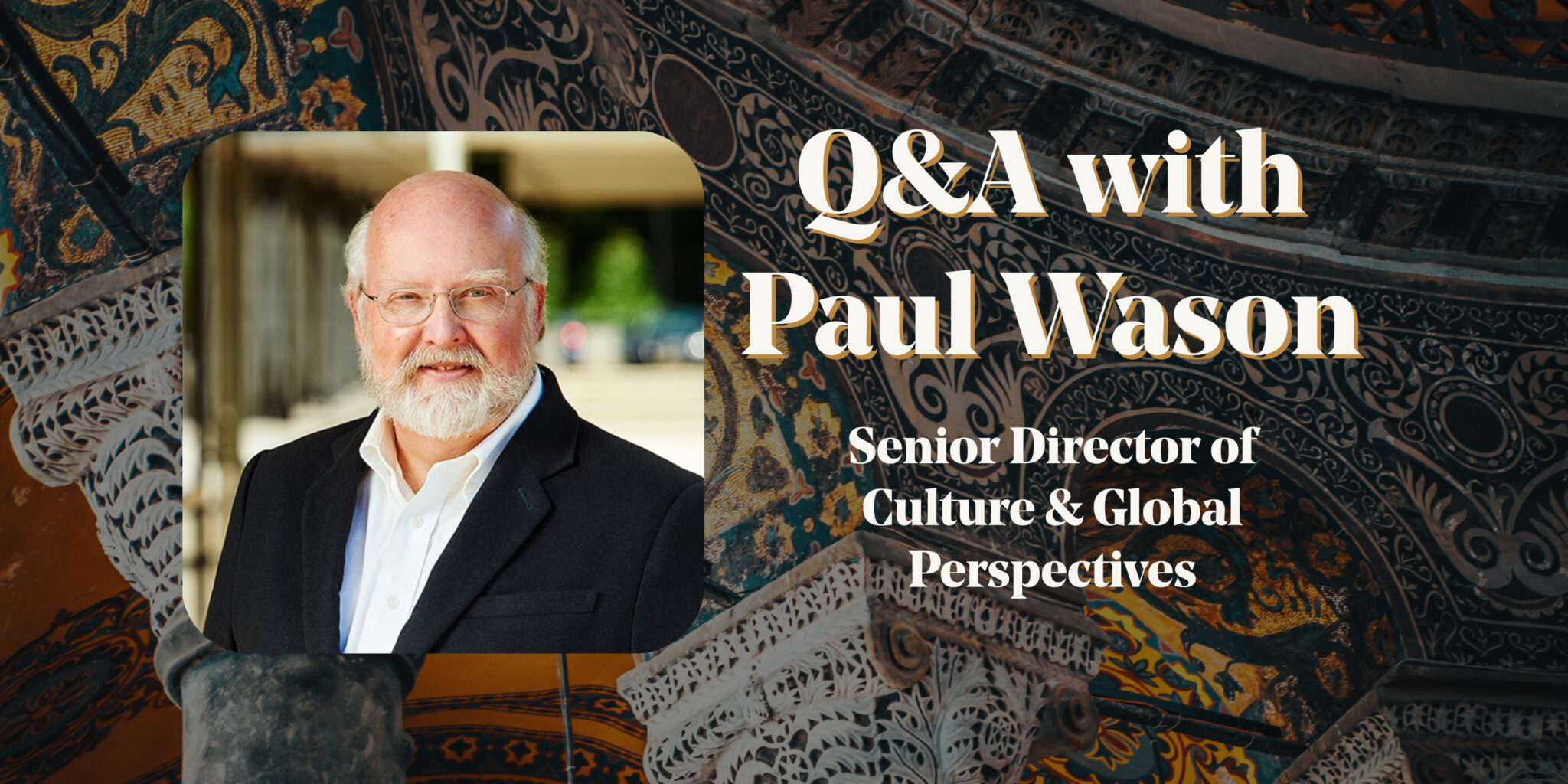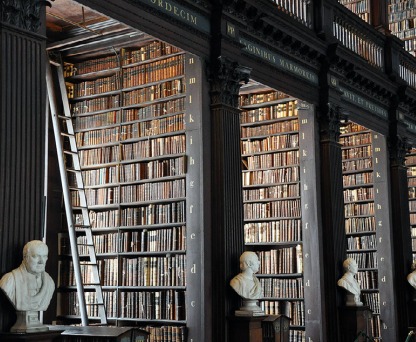We recently sat down with John Templeton Foundation staff member, Rashid Dar, Program Officer for Culture and Global Perspectives, to discuss the Foundation’s interests in and goals for its Islam, Science, & Society research priority.
To get started, why don’t you share a little about your story – what brought you to the foundation? What made you interested in and excited about this place?
In a word – my role is to help catalyze constructive Islamic thought for the present and coming age. That’s how I conceive of my work broadly. We do that through philanthropic giving.
I took an indirect path to this work. I didn’t major in philosophy, per se. I grew up in an observant Muslim household. September 11th happened when I was young, in middle school, and because of that I became more interested in Islam and society broadly speaking. Then I went to University of Wisconsin and majored in international affairs. Afterward I attended a seminary for some time, a madrasa, and then public policy school at Columbia, where I focused on the role that Islam has in politics and policy making.
I then took a job at the Brookings Institution, where my research primarily looked at Islamist movements post-Arab Spring. In early 2018, I came to the John Templeton Foundation.
How do you define the foundation’s work related to Islam, science and society? What are the goals of this priority?
The aim of this strategic priority is to support constructive Muslim thinking at the intersection of Islam, Science, and Society, or “ISS” for short. Sir John Templeton encouraged Muslims, along with people of other faiths, to continue learning, especially through scientific methods, about the relationship of humans to God and to each other. Accordingly, the focus of ISS will be on the interplay between scientific learning and technological innovation and Islamic conceptions of human flourishing. On the one hand, mankind’s scientific and material prowess increases by the day, yielding new challenges for faith. Yet at the same time, how Muslims conceive of and employ the unique teachings of their Islam—in law, theology, spirituality, and more—will impact the way they approach new developments. So it’s really that conversation that we’re interested in, and how insights and discoveries from that conversation can help better human life more broadly.
What should people interested in applying for funding know? What are you looking for – and just as importantly, what are you not looking for?
We are looking for projects that engage Islamic thought holistically. That means looking at Islam from a theological, legal, and spiritual angle. A really good project focuses on all three. Body, mind, and soul. Hand, head, and heart. We want projects that take this holistic view and put that into conversation with a scientific, technological, or societal issue that needs addressing. There are many such topics: climate change, polarization, the way we debate. Community and living together. The nature of a household. Ethical comportment and virtuous character. Perhaps put more simply, we are interested in any project that might give us more insights into what a flourishing human being is or could be, holistically.
I believe ISS has a unique opportunity here because of the degree to which this sort of holism is still present in Muslim societies. By way of contrast, dualism has not taken as much of a hold—the view that the body and mind are separate realities and are treated as such. There’s still a real sense and belief in the unified human being. Probing the potentialities of that holism is something that I want to encourage in the portfolio. Because in so doing, we might get closer to a different and more potent model of how a human being can flourish, one that might yield insights beyond just the Muslim community and for humanity more broadly.
And if it needed to be said, we are not currently looking for projects that are aimed at countering extremism. There are many other funders in that space already; we’re trying to do something unique.
For more detail, I’d encourage anyone interested in applying for funding to please look at our Islam, Science, & Society priority page.
Who do you envision as potential grantees?
At a very high level, I’m interested in grantees that are learned in Islamic thought and tradition but are also involved and influential in Muslim communities. They should be open-minded and curious enough to engage with issues that are of real relevance to their societies, that their constituents are actively concerned over. We are seeking out projects that will help people live fuller lives while also helping Muslims articulate their own unique modality within modernity. As we move towards an increasingly multipolar world, such engagement will not be a luxury, it will be a necessity.
On a more practical note, another factor has to do with language. At the end of the day, I don’t know every language in the world, and the Foundation operates primarily in English. And so while we have to work to our comparative advantage as a Foundation, it’s simultaneously true that because English is the most “global” language, scholarship generated in the English language has an outsized (and sometimes undeserved!) impact. And so given limited funds, we’ve made the strategic decision to target most (but not all) of our giving to projects or scholars who are adept in English or who work closely with a team of translators.
What is most exciting to you about this work?
The sheer variety of topics that I get to engage with, and the significant impact that our funding has on the field more generally. Unfortunately, there are not a lot of people funding Islamic thought (and if you’re out there, please get in touch!).
The global scope with which this work is undertaken is really important and exciting. In terms of active and pipeline grants – we have grant activities all over America, all over the UK, several grants in Turkey, others in Malaysia, Indonesia, Pakistan, and more in the pipeline.
That we’ve found enthusiastic partners in such diverse contexts around the world is to me a sign that the work we’re funding in ISS transcends borders.
Why do you think this topic is important now?
We’re in an interesting time where the conversation around Islam and Muslims is no longer headline news and not center stage. Why is that exciting? It’s exciting because the conversation around Islam and Muslims is no longer securitized to the same extent. Muslims were seen as a problem to be solved, up until very recently.
This change has given the space and the breathing room needed to focus on issues of substance around Islam and Muslim thought, and what it might offer to humanity more generally.
Islam is different than other religions. It has a legal, intellectual, and spiritual dimension. It aims to reform the individual’s character, but also has a communal dimension, with explicit texts on how different societal institutions should be shaped and formed. It has texts on war, on governance. And given this, I don’t think it’s controversial to say that Islam has not become a more privatized reality in the way that many expressions of Christianity have in the modern age. It has not gone quietly into the night – a lot of Muslim societies are still heavily theocentric in terms of their worldview and rhetoric and even everyday parlance. You don’t have the same taboos around religion in public places, for example. As a result there are many different sorts of topics we can talk about.
What big questions do you see in this area?
The big question many Muslims are wondering about—and what even many non-Muslims might also have an interest in—is whether and how Islam can provide real meaning amid a technological society that has left increasing numbers of people adrift spiritually.
Muslims look for such meaning in many places. Can it be found in party politics? Some would say no, some would say yes. Some proffer that fresh thought can be synthesized by engaging in the “Western” academy. Its there a home for Islamic thought in the academy today? And where does it fit? Surely Islamic thought deserves to be engaged beyond Islamic Studies or Area Studies departments.
The degree to which the seminaries (madrasas) are an alternative to the university is very much under discussion. How will the madrasa and university relationship change in the coming years? Some see it as an antagonistic relationship, some feel they can complement one another. It’s a big question in terms of religious pedagogy and authority in Muslim communities and Muslim societies.
There are still more topics. To take just one example, what are the ways in which Islamic teachings can motivate action and awareness of the need to combat climate change within Muslim societies? We just funded a project looking at pesantaren in Indonesia, which are Muslim boarding schools. This project is going to target 25,000 to 50,000 students across the country, and integrate care for the environment and awareness of the delicate nature of the world in which we live and our care for it — all within an Islamic idiom that will connect with people in that part of the world. For example, the sharia wouldn’t permit you to burn down a tree for no reason. We thus come to understand creation as a trust from God – how do you interact with the natural world, and how do you see beyond the environment’s physical manifestation and reach out to its haqiqa, its spiritual reality?
It may be a bit much to wrap your head around at first, but its questions like these which characterize the Islam, Science, & Society portfolio.
Where would you like to see the state of this work in five years?
In the next five to ten years, I hope that we can make serious inroads toward moving beyond the continuously centered “West” versus “the rest”—such dichotomous modes of thinking serve to background the latter as peripheral and exotic. Other traditions and civilizations in fact see themselves as contenders and competitors, and this simple fact will become ever more undeniable as a multipolar world emerges at the geopolitical level. Said otherwise, it would be a great outcome to see the topic of Muslims and Islam shift from one of conflict and the never-ending reform of the “problematic Muslim” to being associated with positive and meaningful contributions to humanity, and overall, and for such contributions to be taken seriously on their own terms. That might be uncomfortable at first, but that feeling to me is an indication that we are on the right track.
Sir John Templeton has this quote: “What a happy conversation it will be if each of us is lovingly trying to give to the other his holy treasures.” It is a vision of mutual respect and curiosity, and perhaps even a competition. It does not involve condescension or violence. It is a sharing of human wisdom as it has manifested in various cultures. That wisdom can be shared by anyone, including Muslims. If in five years we’ve gotten used to that sort of raw and honest exchange, it will have been a worthwhile endeavor.
There’s a famous hadith, or narration, where the Prophet says wisdom is the lost property of the believer, and wherever he can find it he should take it. Muslims are always looking for wisdom wherever it can be found. There’s no doubt in my mind that Sir John would have found great resonance with such an approach to life.
Still Curious?
Explore featured grants from Islam, Science, & Society.


